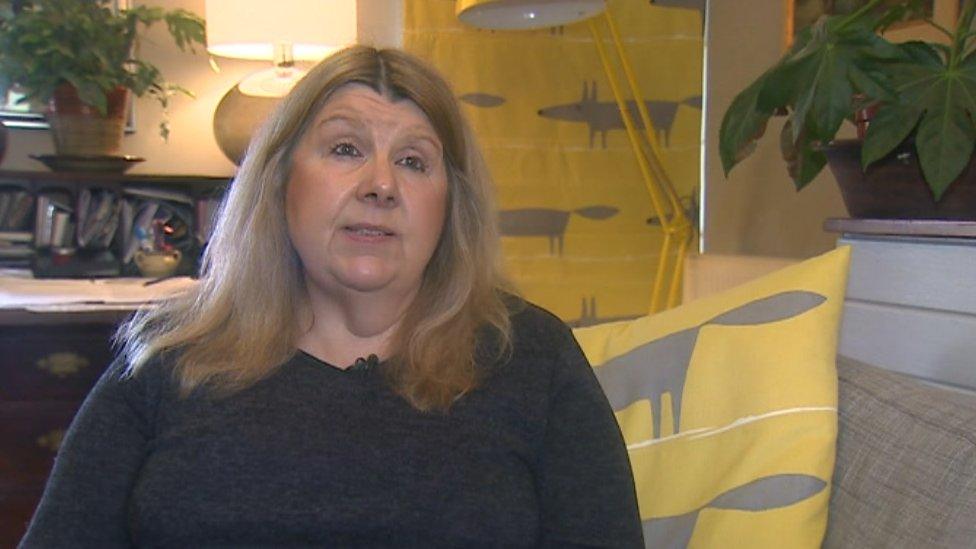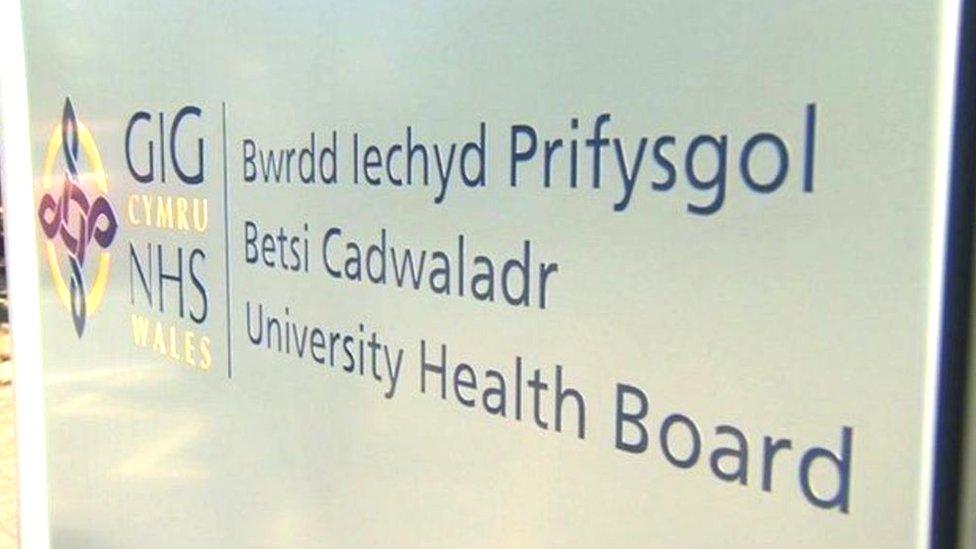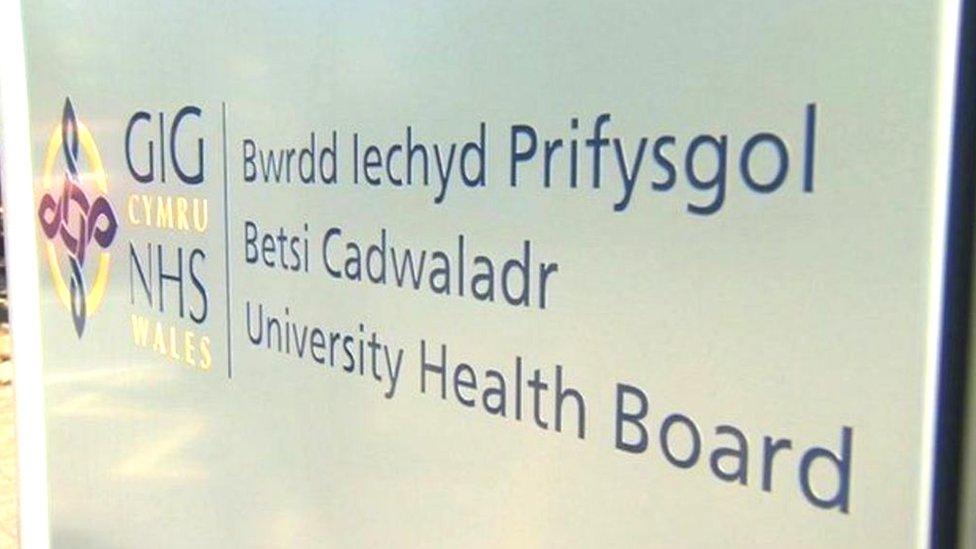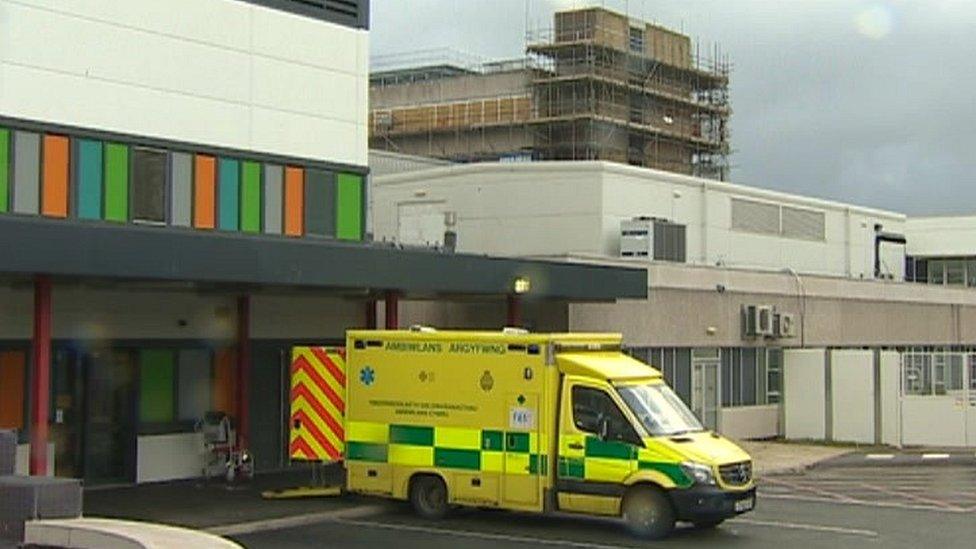Fear for life over changes to Ysbyty Gwynedd, Bangor
- Published

Bethan Russell Williams has resigned from the board
Lives could be lost if changes are made to some services at one of Wales' main hospitals, according to a former health board member.
Bethan Russell Williams said she resigned from Betsi Cadwaladr health board after learning vascular services will move from Ysbyty Gwynedd, Bangor.
They will be at Ysbyty Glan Clwyd in Bodelwyddan - but she fears patients from some rural areas will suffer,
The health board said its service is stretched.
Ms Russell Williams said she is worried that some patients in need of emergency vascular treatment who live far from Ysbyty Glan Clwyd, will die before they reach hospital.
Vascular services help people with circulatory system problems.
"It is becoming abundantly clear that the health board is moving towards centralisation of all emergency vascular provision in Ysbyty Glan Clwyd and I am fearful for the population in the very rural areas in Pen Llyn, Eifionydd and Meirionydd," said Ms Russell Williams, who resigned as an independent member of the board after four years.
She added that the changes were contrary to the impression given in a document last year.
The matter was raised at the Senedd plenary session on Tuesday with Rural Affairs Minister Lesley Griffiths, answering on behalf of the absent first minister, saying there had been "confusion" over the future of vascular services in north Wales.
She said that a March 2018 letter explained that "patients with diseases of the lower limbs related with circulation will be managed at both Ysbty Glan Clwyd and the limb salvage unit at Ysbyty Gwynedd with provision for elective and emergency admission and in-patient treatment at both sites".

The health board said the investment allowed it to create a team who are doing the most complex cases every day
Ms Griffiths said it was this sentence that might have caused the confusion and that the elective and emergency treatment at Ysbyty Gwynedd related to diabetic foot and non-arterial cases.
She added that in effect there had been no change to the decision taken back in 2013 regarding the reorganisation of vascular services in north Wales.
Ms Russell Williams accepted that a decision was taken in 2013 to reorganise but she says that the situation had significantly changed since then.
"Yes there was consultation in 2013 but there were concerns then that it was significantly flawed with insufficient clinical input," she explained.
She added: "It appears to me now that the health board is backtracking and maintaining that it was poor grammar and poor wording that might have left it open to misinterpretation."
The health board said it accepts "that the wording of our March 2018 board paper could and should have been clearer".
It estimates that fewer than 100 patients each year from Anglesey and Gwynedd will need to travel to Glan Clwyd for their vascular surgery.
It added: "Our current service is too stretched, individual hospitals cannot provide 24/7 emergency vascular care, so out-of-hours it is provided at either Ysbyty Gwynedd or Wrexham Maelor Hospital on an alternating basis.
"If patients are too unwell to travel, the on-call surgeon travels to them. This would continue to be the case with the new service.
"Bringing the specialised surgery into one place allows us to invest in the latest equipment and technology and to attract new staff."
- Published20 February 2019

- Published1 February 2018

- Published11 October 2017

- Published11 May 2017
